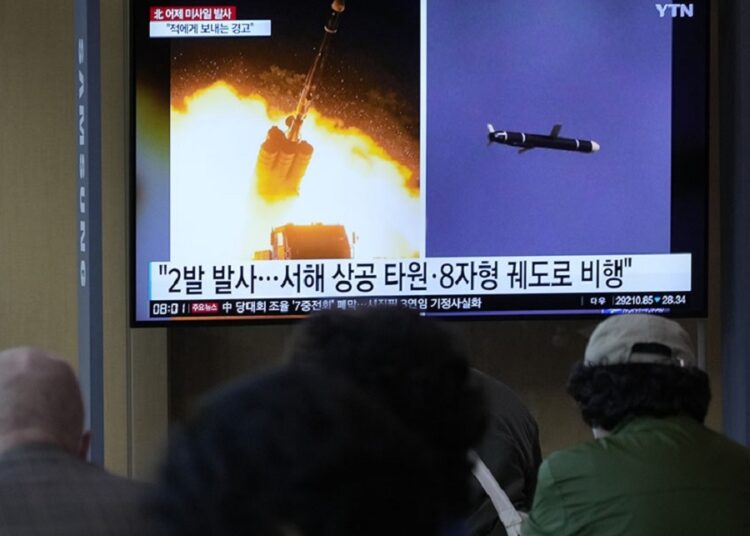SEOUL- North Korea on Friday test-fired a short-range ballistic missile and flew nearly a dozen fighter jets close to the border with the South — the latest in a series of military provocations that have sent tensions soaring on the Korean peninsula.
Leader Kim Jong Un has overseen a blitz of ballistic missile launches in recent weeks, which Pyongyang has described as tactical nuclear drills that simulated taking out airports and military facilities across South Korea.
The North’s military said its latest actions came in response to a “provocative” South Korean artillery exercise near the border.
The Korean People’s Army “took strong military countermeasures,” said the statement carried by the Korean Central News Agency early Friday.
The KPA issued “a stern warning to the South Korean military inciting military tension in the frontline area with reckless action,” said the statement according to AFP.
South Korea’s Joint Chiefs of Staff (JCS) said it detected the missile launch from the Sunan area in Pyongyang in the early hours of Friday, according to Yonhap news agency. It did not provide other details.
“Our military is maintaining a full readiness posture in close cooperation with the United States,” the JCS said, according to Yonhap.
Earlier, the South’s military said 10 fighters had been detected flying 25 kilometres (15 miles) near the inter-Korean border late Thursday into early Friday, crossing a Seoul-set “reconnaissance line” that triggers an automatic operational response.
Seoul scrambled military aircraft, including F-35A fighter jets, according to the JCS.
Pyongyang test-fired a pair of long-range strategic cruise missiles on Wednesday — tests personally supervised by Kim.
The cruise missiles — which travel at lower altitudes than ballistic missiles, making them harder to detect and intercept — flew 2,000 kilometres (1,240 miles) over the sea before hitting their targets, KCNA said.
Kim expressed “great satisfaction” with the recent tests, which he said showed the country’s nuclear combat forces were at “full preparedness for actual war” and sent a “clear warning to the enemies,” KCNA said.






Discussion about this post